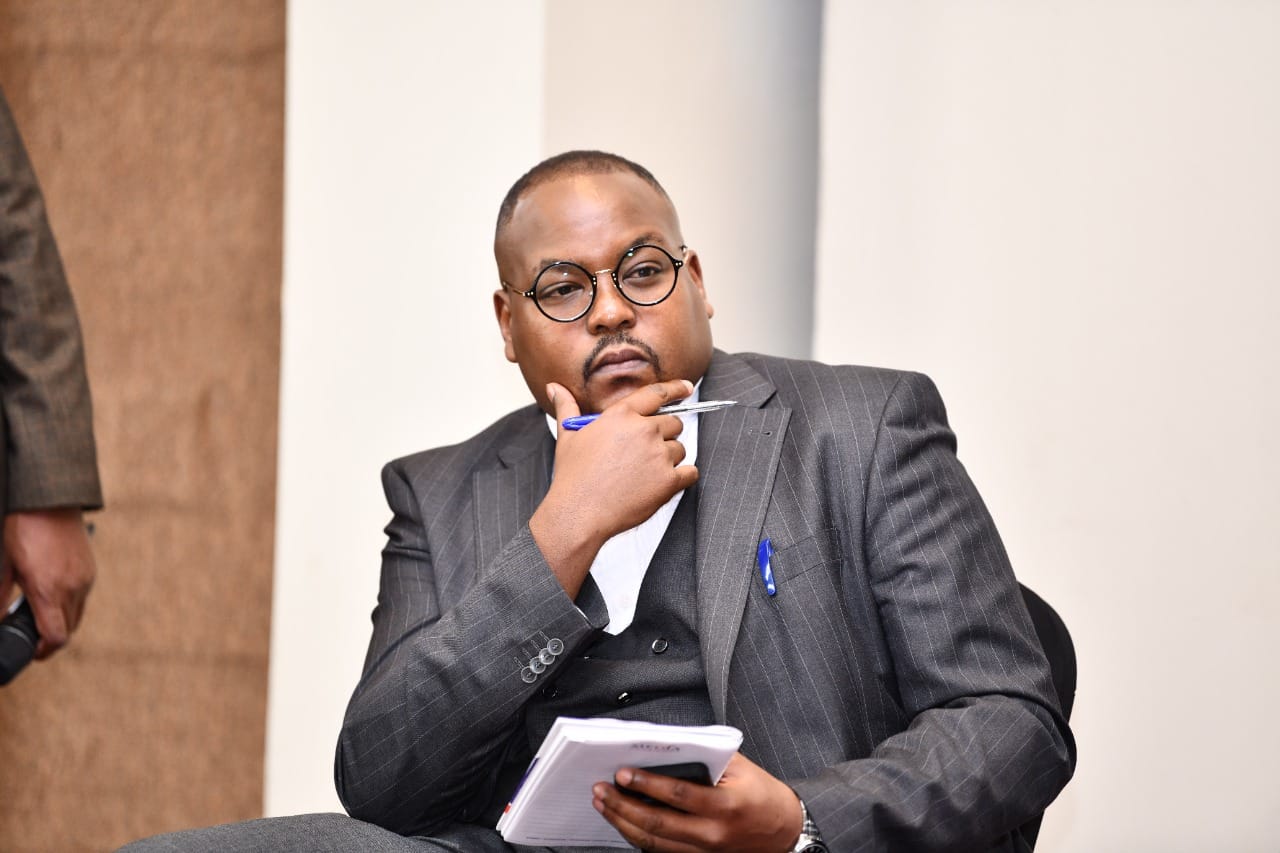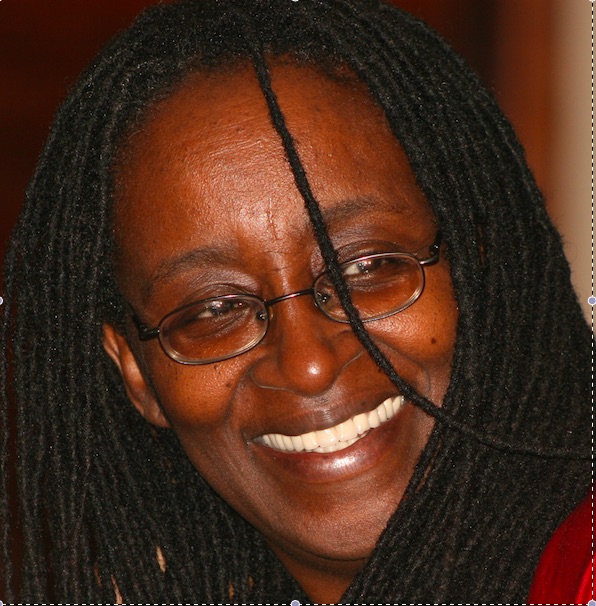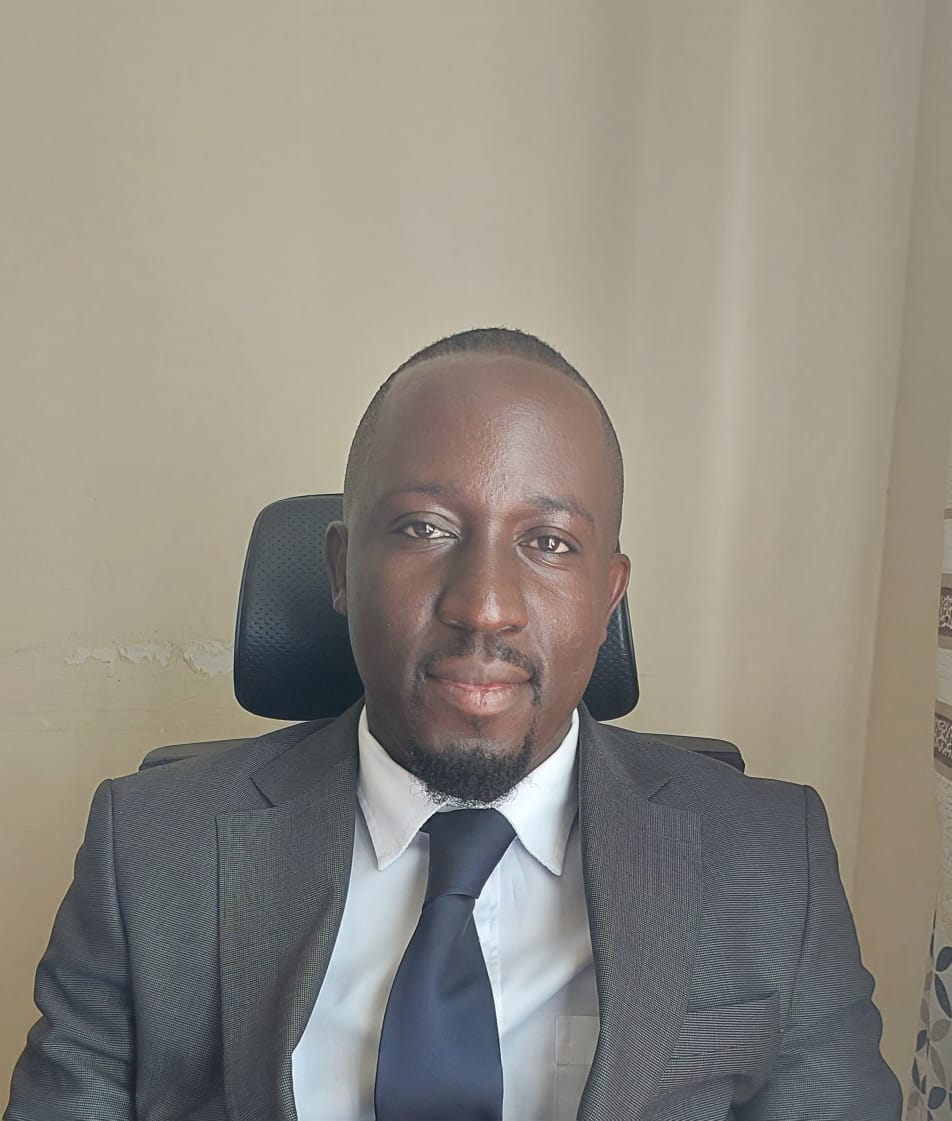By Sharon W. Kiburi
Nairobi, Kenya: In the last decade, the state has increasingly put more and more pressure on the Kenyan media, which has always labored to define its societal role and hold the government accountable.
Criticism of the press, whether outright threats, intimidation, harassment of journalists, or the recent remarks by Deputy President Rigathi Gachagua that ‘the media needs to be accountable,’ implying the desire to limit freedom of speech by the media and silence dissenting opinions.
According to the the Deputy President, he views the current media freedom as unfair and would like the media to be gagged to silence dissenting opinions in equal measure with the politicians. This signifies a concerning shift towards curtailing the freedom of the media and suggests a desire to control the narrative through outright threats and intimidation. As a result, some journalists have become fearful and self-censoring, hesitating to cover what they deem delicate subjects.
“This means that editorial boards and senior management in media houses are self-sensory to varying extents to maintain or attract government favors,” said Demas Kiprono, an immediate former member of the Media Complaints Commission and a freedom of expression expert. Further, Kiprono said that media capture affects journalism quality to the extent that being connected to the state may ensure access to government advertising.

In any field where civic space is shrinking, investigative journalism is curtailed. Media houses face constant pressure from authorities, including threats to withdraw advertising and defamation lawsuits, like the recent case of the junior editor at Tuko, which awarded monetary and punitive damages to complainants.
The Kenyan government has also revived the tactic of filing criminal libel cases against journalists who adversely mention those in power and authority in investigative stories about corruption. Purity Mwambia, a citizen TV journalist, and her crew were forced to escape Kenya in 2021 after covering a story on police renting out their guns to criminals. Arshad Sharif, a Pakistani investigative journalist, was killed in a police shootout in Kenya in October 2022 under disputed, dubious circumstances.
Oduor Ibrahim Advocate, Head of the Media Legal Support Unit at the Kenya Union of Journalists (KUJ), says, “At KUJ, we are aware of at least five cases where investigative journalists have been targeted, tortured, or deliberately injured by state agents and law enforcement.” Ibrahim explained that holders of county executive positions have also contributed to the complex environment for journalists by allowing some of their supporters to attack journalists with impunity and violently.
“The media in Kenya right now is facing an existential crisis. Newspaper circulation has shrunk in a big way, as have TV and radio audiences. Consumers have abandoned ‘Legacy Media’ in droves as alternate channels built on digital platforms begin to dominate,” elaborated Macharia Giatho, a former Nation Media Group managing editor who is now an independent journalist and notable writer.
He added that the primary revenue sources for media are also rapidly shrinking as governments, corporations, and other big advertisers cut spending by moving to what they see as more cost-effective online platforms.
“There are fears within the industry that ‘media is dying,’ but that is not necessarily true. There are still enormous audiences for news, information, and entertainment. Still, a significant shift to new web-based and social media platforms has disrupted the orthodox content production and dissemination methods,” said Mr Macharia.
“With a mix of print, broadcast, and digital outlets, the media landscape in Kenya reflects diverse perspectives. However, financial constraints, particularly in legacy print media, due to the collapse of the ad-driven model, have led to staff purges,” says Catherine Gicheru, ICFJ Knight Fellow and founder/director of Africa Women Journalism Project. Additionally, the remaining staff face worsened welfare with delayed salaries. Some news organizations resorting to paywalls, Gicheru said, “see declining subscribers due to a lack of unique and engaging content.”
“In Kenya, state capture has strained the quality of journalists’ work. The concerns over editorial independence, self-censorship, and the chilling effect on investigative reporting are palpable. The pressures from political entities have also created challenges in media organizations’ ability to present unbiased and comprehensive news coverage,” said Gicheru.
“The Kenyan government is not amenable to media reporting that contradicts their views on their operations,” expressed Macharia. The Kenya Kwanza government, he said, like its predecessor, the Jubilee administration, is suspicious of free and independent media.

“It is hostile to a media that holds it to account or generally does not do its bidding. It has followed Jubilee’s footsteps in using denial or restriction of government advertising as a way of blackmailing the media into compliance. It is also openly exploring revising media laws and regulations to dilute the constitutional and statute-law provisions that underpin media freedom, particularly the self-regulatory mechanism,” narrated Macharia.
Media critics in a report on sustainable funding argue that diversification of ownership is a necessary but insufficient condition to reduce government capture, and they show that economic and legal pressures media companies face undermine their long-run viability. Media sustainability greatly influences content production and the quality of journalism in Kenya.
The report found that “the leading advertiser in Kenya is the government, which utilizes its advertising budget to reward media outlets supporting the government’s agenda and propaganda and punish those that do not.”
The Nation Media Group (NMG) has recently been the butt of attacks, including an outburst from Moses Kuria, Cabinet Secretary (CS) for Investments, Trade, and Industry, who gave direct instructions on national television that the government ministries should not advertise with the NM-group due to their reporting. The deputy president backed his statements in his subsequent speeches. At the same time, President William Samuel Ruto claimed that if his appointees unfairly attack the media, someone must defend him from ‘rogue media.’
Gicheru said that media concentration among political elites raises concerns about capture, prioritizing owners’ interests over accountability. The dominance of ‘majors’ like NMG, Standard Group, Royal Media Services, and the Star persists in legacy media. At the same time, in the digital sphere, they contend with news-lite outlets like Tuko and specialist platforms like Kenyan Wall Street.
“In addition, during the cost-of-living protests, media practitioners were targeted and assaulted, and the Communications Authority of Kenya warned six TV stations that they faced sanctions for covering the anti-government protests live,” says Kiprono, adding, “This points to a government that is allergic to mainstream media criticism.”
For Gicheru, the pattern is not always predictable: “The Kenyan government exhibits mixed openness to contradictory reporting. While press freedom is upheld in some instances, media outlets have faced challenges when expressing views contrary to the government’s stance.”
Ultimately, state capture may be challenging to define because it depends on where one sits, notes Macharia. “However, it has been widely reported that, in the run-up to the 2022 elections, the influential ‘opposition, led by then-Deputy President William Ruto, singled out media outlets and individual journalists as ‘supporting the system’ of President Uhuru Kenyatta,” stated Macharia.
The scale of state capture was witnessed during Kenya’s just-concluded general elections a year ago. The Standard Media Group was singled out because it was controlled by then-Baringo Senator Gideon Moi, who was aligned with the rival Azimio coalition of Raila Odinga that enjoyed President Uhuru’s backing. The latter, in turn, controls the Media Max outfit, whose vernacular radio channels have practiced openly partisan reporting.
Then, the broadcast market lead, Royal Media, was condemned because its chairman and principal shareholder, Samuel Kamau Macharia, was openly campaigning for Raila. Also targeted was then-Nation Group Editor-in-Chief Mutuma Mathiu, who was accused of driving anti-Kenya Kwanza narratives. All were alleged by the opposing party, ‘Kenya Kwanza’, to be under state capture by the former regime, which allied with Azimio la Umoja.
Chronological History Media Ownership and Influence of Kenyan Media
Media ownership impacts both the standard and direction of journalism. During the colonial period, the leading news outlet was the then-East African Standard, the precursor of today’s Standard Group. It was owned by a group of British settler investors, who naturally had it support the colonial status quo.
To counter the pre-colonial news slant, the Kenyan freedom fighters of the day—Jomo Kenyatta, Harry Thuku, Oginga Odinga, Bildad Kaggia, Paul Ngei, Achieng Oneko, Pio Gama Pinto, and others—all founded, owned, or edited nascent nationalist newspapers.
In the run-up to independence, Ismaili spiritual leader the Aga Khan took over the Kiswahili language paper, Taifa Leo, as a launchpad for the Nation Newspapers, formed specifically to give voice to the nationalist agenda and give space to alternative voices to those championed by the Standard.
After the advent of independence, the Nation and Standard became the two largest rival media houses; the former was state-owned by Agha Khan, and the latter, after a long period under British conglomerate Lonrho Group, is now owned by the Moi family.
Both groups also moved to centrist, conservative positions, generally unwilling to offend the government or ruffle feathers, even during the dictatorial one-party regime. This was evidenced in the content they allowed to go to the press and the advertisement deals they enjoyed.
In the multi-party struggle of the early 1990s, alternative media titles sprouted to support the struggle for democracy. But they were single-issue magazines that could hardly survive the campaign’s success.
Nation and Standard remain the dominant media groups but face competition from newer rivals, notably the aforementioned Royal Media Services and Media Max, the Radio Africa Group founded by Ghanaian entrepreneur Patrick Quarkoo, and the Capital FM group now owned by the family of late tycoon Chris Kirubi.
In collaboration with the Friedrich Naumann Foundation, Professor George Nyabuga of Aga Khan University released a report titled ‘Media under Pressure’ in early October 2023. He states in the report, “The 2010 Kenyan Constitution is recognised as one of Africa‘s most progressive in terms of press freedom protections. While Kenya‘s constitution theoretically guarantees freedom of the press, putting this freedom into practice has encountered substantial hurdles. First, concerns persist about restrictive media laws, especially those that grant authorities broad powers to regulate the media.”
Additionally, the report found journalists often face threats, physical assaults, and harassment, mainly when covering sensitive political matters, including election campaigns, corruption, or human rights abuses.
The Impact of Advertisements on Kenyan Media
The ‘Media under Pressure’ report further emphasizes that the financial challenges have become an endemic issue for numerous media outlets in Kenya, profoundly affecting their ability to uphold journalistic standards and safeguard editorial independence. Of particular concern is the mounting financial pressure placed on these outlets as authorities resort to punitive measures like withholding advertisements as retribution for what they perceive as unfavorable coverage.
“Advertising is the lifeline of the media. We have mentioned how the government has tried to control or contain what is published in the media by using advertising as a blackmail tool,” Macharia recalled from his time as managing editor at Nation Media Group. He further observes that major corporate advertisers have not shied away from using the power of their advertising shilling to force the media to give them positive coverage or ‘kill’ unfavorable stories.
“Unfortunately, many newsrooms lack the resources to support such investigations, leaving individual journalists to secure funding for their story pitches. However, there’s no guarantee of institutional support if problems arise,” stated Gicheru. Moreover, Gicheru said it is incredibly challenging for journalists to expose high-level corruption involving government officials. In these cases, ‘keyboard warriors’ backed by state actors may launch sustained attacks on journalists or newsrooms. “Dealing with such state-sponsored pushbacks is difficult, and online attacks may escalate to offline threats,” exclaimed Gicheru.
In addition, Gicheru said, the media environment in Kenya is very dire; media ownership has sometimes compromised journalism quality, influencing editorial independence, narrowing perspectives, and impacting the depth of investigative reporting.
The dominance of particular interests has sometimes led to biased coverage, limited diversity of viewpoints, and challenges in holding power to account. Advertising has steered newsrooms toward journalism, prioritizing commercial interests rather than in-depth, informative, and public-interest reporting.
“Media organizations grapple with the delicate balance of sustaining revenue through ads while preserving editorial independence. Unfortunately, there are times when commercial interests overshadow public interests,” as Gicheru stated.
“Such pressure flies against the code regulating media practice, particularly regarding principles insulating editorial operations from commercial departments and other extraneous pressures. They also compromise journalism’s independence and quality,” explained Macharia.

According to Oduor Ibrahim Advocate (KUJ). Further, he said state capture has influenced the quality of journalism to a significant extent. Cronyism, which is the hallmark of state capture, has been unleashed on journalists, who are targeted to be corrupted.
“It is also important to note that some commercial interests in the media opt to go to bed with the government and stay silent in exchange for commercial favors,” says Ibrahim.
The Law and Media in Kenya
Kenya has approximately seventeen laws that touch on or affect media somehow, making it a vast ocean for journalists and editors to navigate and consider in their day-to-day activities. Explaining, Kiprono said the Kenyan media legal and policy framework is extensive.
Our constitution guarantees all media rights, and various statutes establish a media council to regulate the sector, a complaints commission to deal with media complaints against journalists and media houses, and a communications authority established by the Kenya Information and Communications Act (KICA) to regulate the communications sector in terms of frequencies and spectrum.
“Other laws regulating speech and media include defamation laws and the Cybercrimes Act, which has been criticized for criminalizing false news and reintroducing criminal defamation and was declared unconstitutional in 2018,” stated Kiprono.
“The Constitution, Article 34, guarantees media freedom. Further, the Media Council Act seeks to establish the governance of the media sector independently and vibrantly. However, whatever progressive benefits are enshrined in these provisions are significantly watered down by other retrogressive laws, such as the Computer Misuse and Cybercrime Act provisions, which reintroduce criminal defamation,” said Ibrahim (KUJ).
Further, Ibrahim noted that the penal code and the Official Secrets Act have different provisions with retrogressive and anti-media clauses.
“The media environment in Kenya is complicated,” according to Demas Kiprono, “because, as much as the constitution guarantees freedom of expression, the right to information, and a free press, media freedom in Kenya is threatened by the dwindling commercial viability of legacy media business models, attacks against journalists by the police, and government suppression of advertising revenue.”
Efforts to reach the government for comment before going to press were unsuccessful.
This content was developed thanks to a grant administered by MISA Zambia. The project received funding, editorial and legal support from the Thomson Reuters Foundation as part of its wider, global media freedom programme, which aims to strengthen free, fair and informed societies. Financial assistance provided to the journalist exclusively covers expenses associated with research, investigation, and the subsequent publication of stories. The support has no influence or bearing on the journalist’s editorial independence or their choice of topics to report on. The information contained in this content belongs solely to the author and is not endorsed by or associated with the Thomson Reuters Foundation, Thomson Reuters, Reuters, nor any other affiliates.














